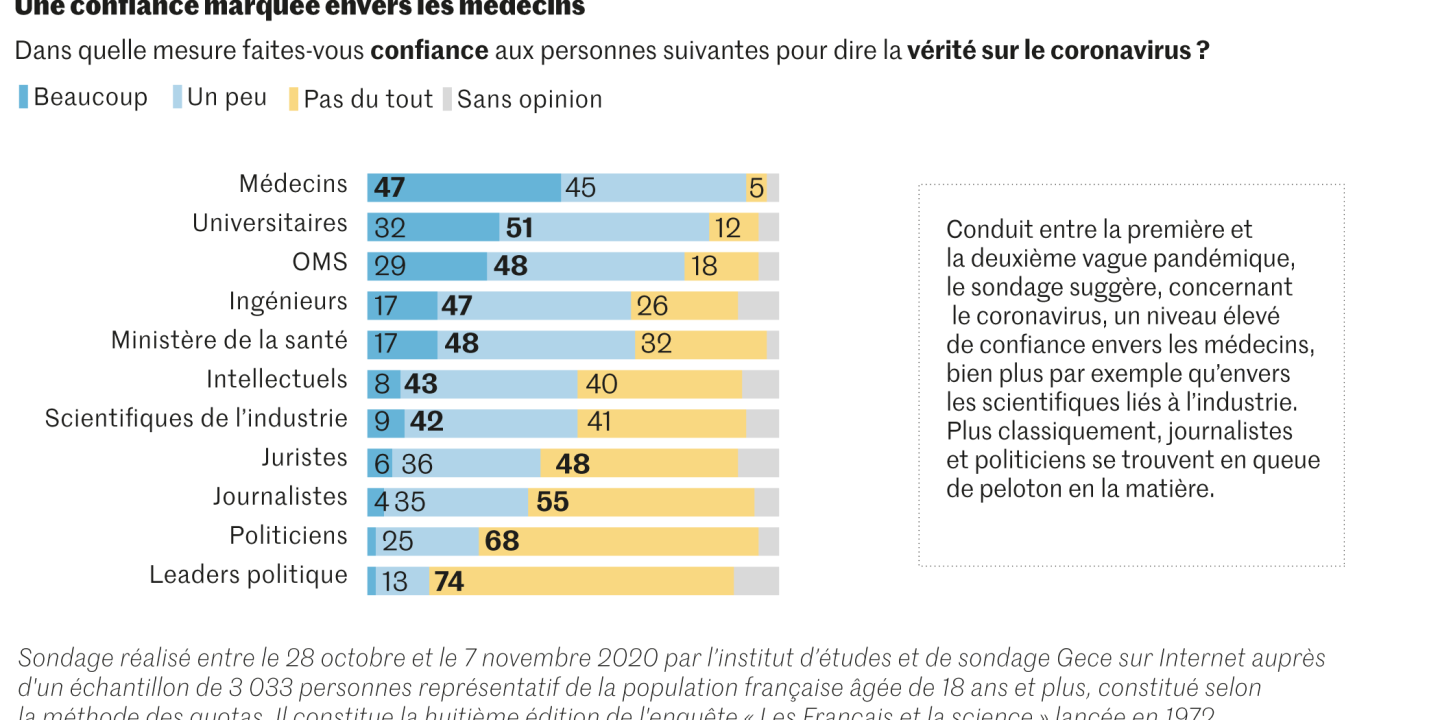Michel Dubois is Research Director of the National Center for Scientific Research in the Sorbonne University Study Group on Social Analysis Methods. On the occasion of the International Conference on Scientific and Technical Culture “Science and You” initiated by the University of Lorraine and held in Metz from November 16 to 19, comments on the results of the eighth edition of the conference. National Survey “French and Science”.
Why this survey?
When it comes to public attitudes toward science and technology, France has quite a bit of treasure in the form of an uninterrupted series of statements spanning half a century. In collaboration with Pauline Hervois (University of Lorraine), and Martin Power (London School of Economics and Political Science), we have directed this eighth edition funded by the University of Lorraine. Our task was to extend previous investigations taking into account recent events, in particular the epidemic. Our survey was completed at the end of 2020 for over 3,000 people through a series of interviews in the Grand-Est region. The aim is to support research on this topic, whose importance has increased dramatically since the beginning of the health crisis. But it is also about making our findings known to those involved in scientific mediation and the decision-makers responsible for public policy.
Some commentators speak of the public’s mistrust of science. what about ?
In terms of scientific culture, we must avoid allowing ourselves to be entrapped by false arguments. And this supposed distrust of the French is one of them. Our results reveal a more complex truth. They emphasize a certain disappointment with science and technology. In fact, since the end of the 1980s, the majority of respondents, 62% in 2020, have stated that they believe that research “brings as much harm as good”. This record level of inconsistency is specific to our country. Elsewhere, especially in northern Europe, fervor is more common.
Our results also underscore the growing question of strength from the public regarding researchers’ ability to maintain independence in the face of large industrial groups. The question of links of interest to researchers has been raised a lot over the past two years, particularly by the press.
However, these two examples are not sufficient to conclude that there is a general mistrust of science. When asked the French, even the youngest, they always answer very positively. They continue to place great faith in researchers and their institutions and show a continued interest in significant advances in the fields of medicine and biology, as well as renewable energies. This observation contrasts with mainstream discourse which tends to overrepresent “conspiratorial” opinions and irrational beliefs that are undoubtedly of a more provocative nature. This observation does not mean that there are no problems. As we have seen, there are some matters to be resolved.
You have 66.34% of this article to read. The rest is for subscribers only.

“Subtly charming problem solver. Extreme tv enthusiast. Web scholar. Evil beer expert. Music nerd. Food junkie.”

